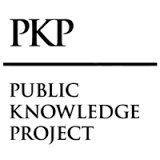Higher education and democratic citizenship:
the challenges and possibilities of education for and through toleration
DOI:
https://doi.org/10.14295/juris.v33i2.16518Keywords:
Higher Education, Toleration, Democracy, Citizenship, CurriculaAbstract
The objective of this text is to defend the importance of rescuing education – especially Higher Education – as a preparation process for the exercise of citizenship and the stimulus to understand the problems of the present world. To this end, he argues that in all degrees, especially in the STEM area (Science, Technology, Engineering and Mathematics), Higher Education not only provides preparation for the world of work but also provides opportunities for studies and research of a more political nature, ethical or philosophical, carrying out what educational legislation summarizes as preparation for exercising citizenship and facing the problems of today's world. To this end, the text argues that educational processes must be carried out as a democratic practice, as an education based on republican values and stances, with an emphasis on tolerance. As indicated in the conclusion, tolerance is considered not only to play the role of an objective, but also to be a constitutive element of Education. Education through and for tolerance would be articulated as a fundamental step towards realizing the scope of Higher Education, as recommended by current legislation and to overcome all types of objections or insensitivity of students who, even in the first years of graduation, lose the interest or consider discussions about ethics, politics and other social issues to be useless. The methodology adopted is, primarily, descriptive-analytical, through a bibliographical review that will serve as a basis for future empirical approaches. Classic authors, compared as far as possible with contemporary researchers, form the theoretical framework assessed by bibliographic and documentary research.
Downloads
Downloads
Published
How to Cite
Issue
Section
License

This work is licensed under a Creative Commons Attribution 3.0 Unported License.
Ao encaminhar os originais, o(s) autor(es) cede(m) os direitos de publicação para a JURIS.







